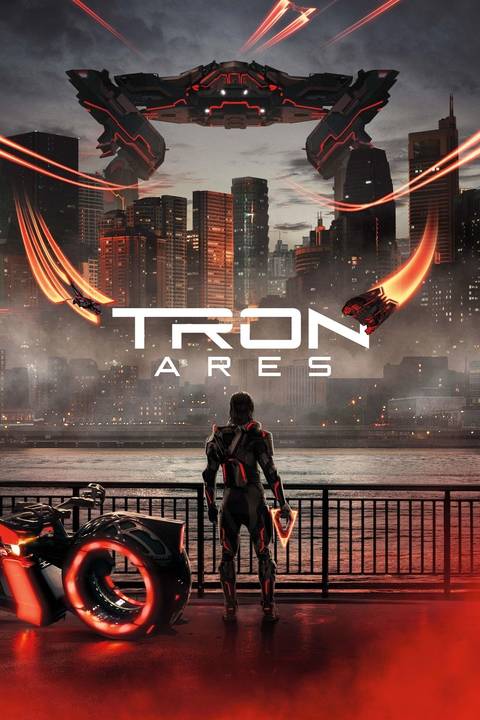The following contains spoilers for Tron: AresTron: Ares sets up a lot of storylines that could drive the future of the franchise. The follow-up to Tron: Legacy largely focuses on a new cast of characters, who are all racing to discover the permanence code that could radically rewrite the future of technology and society as a whole.
The film has a straightforward narrative about Ares and Eve trying to keep the code out of the hands of Julian Dillinger, all while Ares learns the importance of being human. The more intriguing aspects of Tron: Ares are the ways it ends, with plenty of potential narrative threads that could be used to set up future films.
Ares Is Now Looking For Tron: Legacy’s Quorra
The ending of Tron: Ares sets up a meeting between Ares and Quorra from Tron: Legacy. After gaining the permanence code and gaining the ability to exist permanently in the material world (albeit at the cost of his ability to be respawned in the Grid), Ares sets off to explore the world.
On some level, this appears to be driven by his curiosity about life. However, it’s also revealed that he has two photos of Quorra. One is a newspaper from years before of Quorra and Sam Flynn. The other appears to be a more recent photograph, suggesting Ares has learned about Quorra’s existence.
As an ISO who also seemingly was able to naturally overcome the permanence issue that drives much of Tron: Ares, Quorra offers a unique perspective on the experiences that Ares survived. Her survival in the present day could explain why Ares is searching for her, potentially to learn more about her and what makes her special.
Quorra offers a unique contrast to Ares, making any potential meeting between them a fruitful one. Ares was designed by Dillenger to be a warrior on the digital landscape. By contrast, Quorra was naturally generated and tutored by Flynn in art and literature. If there is a sequel to Tron: Ares, it seems that Quorra will factor heavily into it.
Tron: Ares’ Credits Scene Connects Dillinger To Sark
The mid-credits scene focuses on Julian Dillinger, who serves as the overarching antagonist of the film. His determination to get the permanence from Eve leads him to unleash Athena on the world, which results in his exposure and the death of his mother. Fleeing into the ruins of his Grid, Dillinger activates his identity disc in the mid-credits scene.
This notably constructs a digital suit for him that resembles the design of Sark from the first film. Sark was a digital duplicate of Ed Dillinger in TRON, serving as the right-hand to the Master Control Program. In that way, he was actually more akin to Athena, a dangerous threat who served at the command of the overarching villain.
By transferring into the Grid and taking on this form, Julian seems to be fully taking over his grandfather’s role in the franchise. Julian’s arc in the narrative sees him try to prove himself a worthy scion to his family legacy. However, his failure to crack permanence and instead rely on stealing it reflects Ed’s own theft of Flynn’s game.
By becoming a stand-in for Sark, Julian could become the first recurring antagonist of the franchise. It would also be compelling to see how the character’s clear guilt over the fate of his mother and the collapse of his family name could impact or influence his further evolution into a digital threat.
What Tron: Ares’ Ending Means For The Franchise’s Future
Tron: Ares ends with a few big reveals. The first two are the ones that tease the future of Ares and Julian, setting them up to become foundational figures for other stories. Julian could be driven by fury towards his creation to hunt down Ares, who in turn might be forced to reckon with what his humanity really means.
The more intriguing beats to the ending are the ways Eve’s survival and Athena’s attack could impact the wider world. The ending confirms that Eve has used the permanence code for the betterment of humanity, using it to help combat food and energy shortages around the world. In essence, the permanence code has changed human existence.
Any future story set in the Tron franchise would need to address the code, either by undercutting it with new limitations or radically altering a society that no longer needs to struggle for the necessities that ENCOM has now made limitless. The Athena attack also openly confirms to the world at large that digital entities can attack the real world.
The US military was already interested in wartime application of the digital constructs, as seen in the film’s opening scenes. It seems likely that they will construct their own answers to Ares and Athena, as well as their own fleet. Either for defensive capabilities against other attacks or to bolster their own forces, digital soldiers seem like an inevitability.
Any future Tron movies will find it impossible to push all these discoveries back into the shadows. Rather, a sequel should embrace these elements and explore the full fallout of a world that not only reaps the benefits of the Grid but is painfully aware of how dangerous it can be as well.
The Real Meaning Of Tron: Ares
Tron: Ares is ultimately a movie about purpose in life, and how it can’t simply be defined by the form or function of one’s creation. Ares is specifically designed to be an unfeeling soldier that carries out the commands of its creator. However, even a simple observation of rain is enough to send Ares into an existential state.
Even before he fully rebels against Dillinger, Ares ignores orders to try and save a fellow program. There’s an undercurrent of natural curiosity to Ares that steadily develops more of as time wears on, speaking to his ability to develop feelings and genuine empathy. This is what convinces the Flynn avatar to give Ares the permanence code.
Tron: Ares gives the titular character the ability to find his own purpose, and portrays his genuine lack of specific drive or destiny as a good thing. He honestly doesn’t know what he’ll do next after defeating Athena, which is the happiest possible path for a character who is still learning what feelings are.
The film puts emphasis on how Ares’ developing his own emotional state is a good thing. It’s proof that the digital citizens of the Grid could grow to become their own people, and that simply following directives isn’t enough for life to truly flourish. This reflects the New Age philosophy that’s always been at the core of the series.
This is also reflected in the arcs of Eve and Julian. Eve is driven by a desire to complete her sister’s work after her death, and grows as a person to embrace that path for herself at ENCOM. By contrast, Julian’s desire to prove himself a worthy heir leads to a lot of death, destruction, and his own villainous transformation.
Tron: Ares is ultimately sympathetic to the people driven by their “code,” whether that be a literal one like with Athena or by a self-imposed mission like Julian. However, the heroes of Tron: Ares are the ones who can overcome it and focus on the majesty and mystery of life instead.

Tron: Ares
- Release Date
-
October 10, 2025
- Runtime
-
119 minutes
- Director
-
Joachim Rønning
- Writers
-
Jesse Wigutow, David DiGilio, Steven Lisberger, Bonnie MacBird






